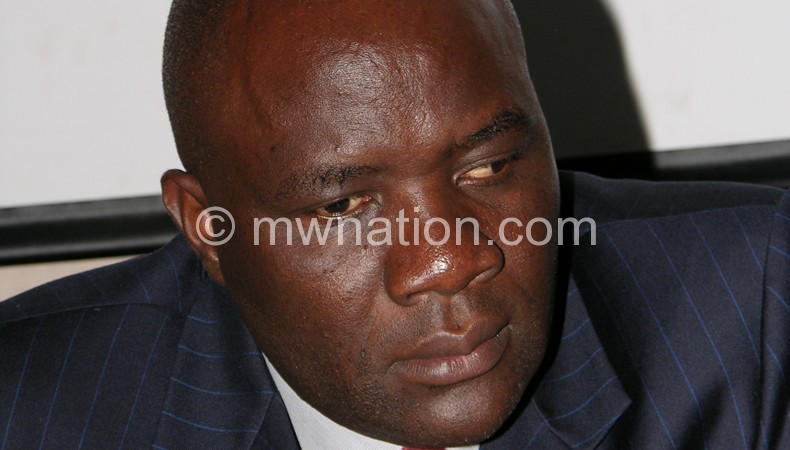Lucius defies UDF
Says will remain in opposition benches
Leader of United Democratic Front (UDF) in Parliament Lucius Banda has defied his party’s decision to relocate from opposition to government benches in the National Assembly.
Banda’s decision comes after almost one year of an undefined working relationship between UDF and the governing Democratic Progressive Party (DPP) in Parliament that also saw President Peter Mutharika including in his Cabinet UDF president Atupele Muluzi.
UDF members of Parliament (MPs) are expected to start sitting on the government side from today when Mutharika opens the Budget Meeting of Parliament this morning with a State-of-the-Nation Address.
The new arrangement follows UDF’s request and subsequent approval by Speaker of Parliament Richard Msowoya.
But in an interview yesterday, Banda, who is Balaka North MP, said he was not ready to move to the government side because “it is not necessary for me”.

He said much as he appreciated his party’s decision, he could not be swayed to join government benches because there was no need to do so.
“It [the arrangement] has been negotiated for some time until I saw that I could not convince everybody and decided to make my own choice. I also think I can still speak on behalf of UDF while sitting on opposition benches and keep good working relationship with government while appreciating good points that come from the opposition,” said Banda.
In the course of the day, Banda posted on his Facebook page a status update that hinted at his position.
The post read: “The most painful time for a man is when refusing to follow your leader into a wrong direction makes you look rebellious… What would you do?”
UDF secretary general Kandi Padambo yesterday said he was yet to get communication from Banda about his position.
Said Padambo: “I am hearing that from you [The Nation]. If he [Banda] has reservations to that decision I will get communication within the established channels, so I think it will be unfair for me to comment on the matter.”
Reacting to Banda’s stand, Father Boniface Tamani, a political scientist based at the University of Malawi’s Chancellor College, described the move as “a positive development for the nation to have some MPs who refuse to be influenced by their parties, but hold to their independent judgement”.

UDF won 14 seats in the 193-member National Assembly during the May 20 Tripartite Elections.
In The Nation survey involving 13 of the 14 UDF MPs, two said they have no problems moving, one gave an outright ‘No’, three were undecided and five said they would follow the party’s position.
Two of the 14 legislators—Minister of Home Affairs and Internal Security Atupele Muluzi and Second Deputy Speaker of Parliament Clement Chiwaya—would not be affected by the move by virtue of their positions.
In Malawi, over the years, political party working relationships have proved disastrous to subordinate parties.
During the first post-independence multiparty general elections in 1994, the Alliance for Democracy (Aford) scooped all seats in the Northern Region and some in the Central Region. However, Aford’s numbers in Parliament started to dwindle after the then party leader, the late Chakufwa Chihana, entered into an alliance with the then governing UDF. Currently, Aford has only one MP in Parliament.
The Republican Party (RP) of Gwanda Chakuamba won 17 seats in Parliament during the 2004 general elections. But when it entered into a post-election alliance with the then governing UDF, RP won no seat in the 2009 elections.
UDF came to power in 1994 after defeating Malawi Congress Party (MCP) in 1994. It swept seats in the Southern Region and most seats in the Central Region.
During the 1999 elections, UDF won 91 seats, but the figures continued to drop in the subsequent elections when it won 49 seats in 2004 and 16 in 2009.





